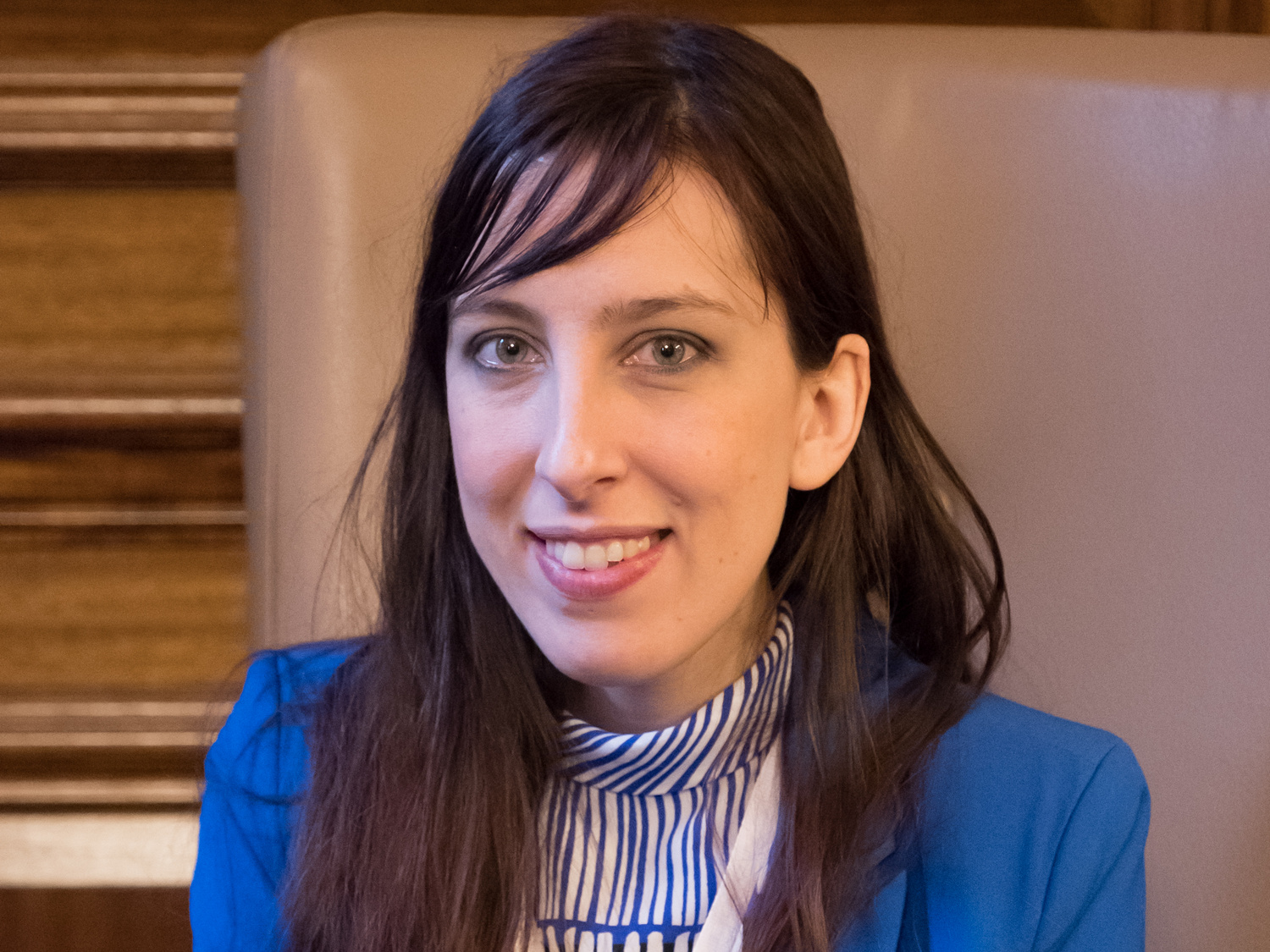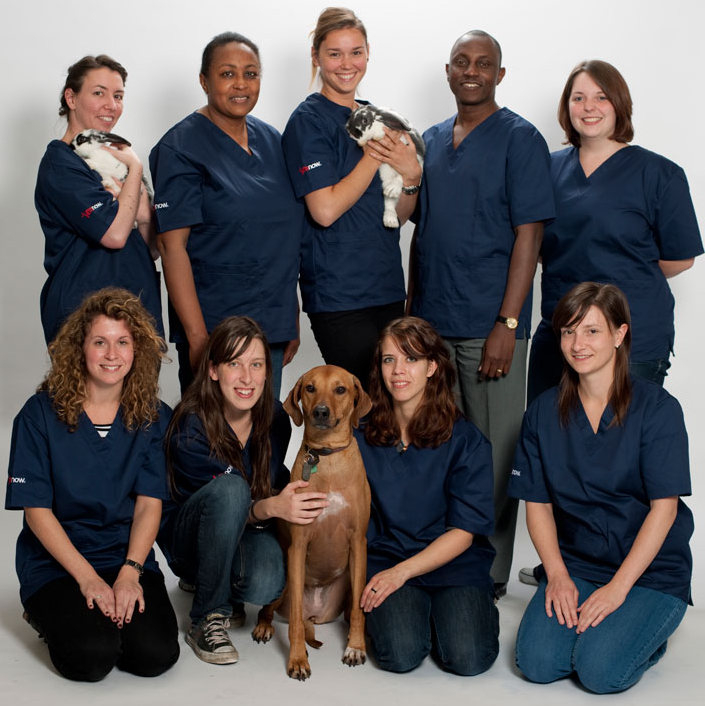Cutting Edge graduate talks about her career journey and plans for the future
When Monica Guzman embarked on our Cutting Edge programme in 2012 she was lacking the experience and confidence to work in emergency and critical care.
But she emerged 10 weeks later feeling like a far more accomplished vet.
Monica’s experiences provided the foundation for a hugely successful career and, fast forward seven years, she is now thriving as a senior vet and mentor to those who have chosen to follow in her footsteps.
In this Q&A, Monica, 33, who is originally from Majorca but now lives and works in Witham, Essex, talks enthusiastically about her career journey and how Vets Now has helped her fulfil her potential.

Want to follow in Monica's footsteps?
Call our talent team on 01383 841181 to discuss your options or send one of our talent partners an email by clicking here.
Find out more
You might also be interested in:
What’s your background?
I graduated from vet school in Valencia in 2010. During university, I was keen to go to the UK because of its reputation for helping vets progress their career. I started in a first-opinion clinic and then began an internship with the intention to become a neurologist. But I soon realised I didn’t want to follow this career path. I started thinking about my future and came to the conclusion emergency might be the path for me, partly because you get to do a bit of everything, including neurology. I joined the Cutting Edge programme in October 2012.
Would you recommend ECC to others?
If you’re not too keen on doing routine vaccines, bitch spays and treating skin conditions day in, day out, then emergency may be the answer because you get to specialise in a bit of everything. You get to do so much more with your time and you learn a lot.
What do you enjoy most about your job?
Mentoring is something I really enjoy. It works both ways and I also learn a lot from shadowing the vets in my team. There’s a real mentoring culture at Vets Now and always someone on-hand who can help or offer advice.
How has Vets Now supported you to make the most of your potential?
I couldn’t be happier with how Vets Now has supported me. I’ve been doing 300 hours of CPD a year for a while and haven’t had to pay a penny for any of it, nor have I had to worry about arranging time off to study. I’m currently in the final stages of completing a certificate in ECC and have a learning agreement in place for this. There’s so much help and support for people keen to improve themselves.
What make Vets Now a unique employer?
At Vets Now, you set your own limits. You’re afforded the opportunity to be the best vet you can be. If you want to do something, they’ll provide the training. There are no barriers in place to learn and progress.
Is there anything else you like about working here?
It’s also one of the few places you can actually be an emergency vet. In many other out-of-hours providers, vets still do routine, first-opinion work. But there’s a big difference between working as an emergency vet and working as a vet at night.

Did Cutting Edge prepare you well?
I remember wondering if 10 weeks would be enough to learn about all these emergency procedures, but the training was very intensive, and I only realised how much I’d picked up when I started working emergency shifts. The day after I finished Cutting Edge I wasn’t scared. I came out of it feeling ready. The fear I had 10 weeks previously had gone.
What was the best piece of advice you received?
You are not going to make a mistake that hasn’t been made before so don’t be too hard on yourself.
Given this, is the no-blame culture at Vets Now important?
Yes, because you are free to be open about any mistakes you have made and are encouraged to learn from them and find out what you could have done instead. You don’t need to be scared.
Is there anything you know now you wish you’d known when you started?
Undergraduate vets now see specialists in their university hospitals and want to follow in their footsteps. They look at orthopaedic surgeons or cardiologists and decide they must do an internship or a residency. But, for me, people close a lot of doors by going down this route too early. It’s important to try lots of things before settling on a career path.
Where do you see your career going?
In the last few years, my career has moved away from purely clinical to doing more mentoring and managing and taking on other responsibilities. As well as being senior vet in our Witham clinic, I also deputise for the district vet. I enjoy this side of the role, too, and would be keen to do more.
Monica Guzman Senior Vet"At Vets Now, you set your own limits. You're afforded the opportunity to be the best vet you can be."
What advice would you give to someone considering a career in ECC?
People always worry about doing GDVs. But, in reality, it’s probably the only surgery in which you can’t make things worse. For me, it’s much scarier doing a routine surgery on a healthy animal. I enjoy GDVs and blocked bladders because you can make such a huge difference in a short space of time. You only get cases like that in emergency.
What’s been your proudest moment?
There have been lots. But perhaps the most memorable was when one of my Cutting Edge vets, Magda, was promoted to senior vet. I mentored her for a year and a half and she’s done so well. I also feel proud when I work on difficult cases and manage to fix the problem. It’s moments like that that make our job so worthwhile.
As a senior vet, do you get autonomy to make decisions?
Yes, I do and it makes sense. People join the company for lots of different reasons. Some do it because it’s family friendly, some do it because they enjoy working nights and some because they like to return home between shifts. If you have a fixed rota pattern that’s set centrally, for example, it doesn’t take into consideration the different reasons people join. By delegating this authority to clinic level, it’s much easier to get close to everyone being happy.
How do you achieve work-life balance?
I’ve been very lucky because my other half is very supportive. He understands that this is what I enjoy doing. It’s important to have supportive people around you. It’s important to find out what works best for you and be open about this with your friends, family and colleagues.
Are you a vet looking to enter the world of ECC, but want to make sure you have the right skills first? Cutting Edge may be for you. Learn more about Cutting Edge here.
